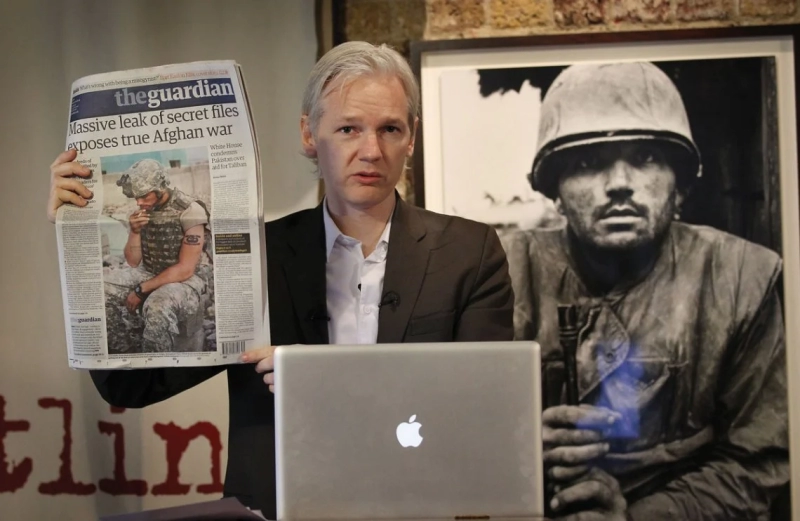My new oped for Express-Tribune
The Wikileaks’ damning half-truths pertain to the anti-war movement within the US. This has caused embarrassment to the US war architects and stirred the military industrial complex and its cousin, the corporate and embedded media. Similarly, what has been said about the role of Pakistan and its globally famed Inter Services Agency (ISI) is not something that is really a revelation and is more or less an open secret. Three important questions need to be considered before Wikileaks can be taken seriously.
Do field reports from individual sources, especially disgruntled, anti-Pakistan Afghan nationals constitute ‘evidence’? No. Is there sufficient evidence to substantiate the startling sensational pieces of information? Perhaps not. Is the Pakistan-ISI role central in the Taliban insurgency within Afghanistan? No clear answers can be determined due to the complexity of the Taliban resistance and the involvement of multiple players.
The ‘leaks’ identify that Pakistan, India and Iran are fully involved in the Afghan drama and singling out the ISI is not the whole truth regardless of whatever the western media says. Afghanistan is an occupied and fragmented country, far more layered than the simplified views from Washington, Islamabad or New Delhi.
However, this does not mean that conspiracy theorists in Pakistan are right. It has been the Pakistani state’s determined policy to gain not-so-strategic depth and use the Taliban to rule Kabul by proxy. It was done right under the nose of our most progressive politician in the 1990s. Another prime minister celebrated the Taliban’s quick dispensation of justice. Since then there have been ’embedded’ analysts and opinion-makers in Pakistan who think that the Taliban are the righteous solution for Afghanistan. It is only when the TTP started to threaten the Pakistani state that this truth was challenged and a war against the miscreants was declared in April 2009.
The revelations are mostly un-sourced and our foreign policy managers have denounced it as yet another conspiracy against Pakistan. But that is simply not enough. The question is whether these revelations will prompt us to rethink where we stand. Unfortunately not. We are glued to our Taliban policy and quest for strategic depth. Already, there are indications that the ‘good’ Taliban will be given a share of post-Nato Afghanistan. Whilst it may serve short-term purposes it is inimical to the long-term stability of Pakistan.
The fact is that the Afghan Taliban are linked to the Tehreek-i-Taliban Pakistan through kinship and ethnic affinities and both entities are not committed to nation-state borders. Their aim is to establish a Khilafat and we cannot pretend that fighting one arm here and supporting another will be beneficial for us. Pakistan, for the last three decades, has been a playground for sectarian, militant movements with considerable finances, outreach and media support. These organisations are working to impose their brand of statehood through violence. How many states will we accommodate, especially when the centre, in present form, does not have great authority over its constituent units?
It would be unwise to dismiss these leaks. It is time to acknowledge that the world knows of our fantasies and strategies. Pakistanis are not interested in what the west likes or dislikes. We are concerned for our security, especially for the burgeoning youth of this country. It is time to deepen the corrective action within, rather than looking westwards for strategic victories. It is hoped that the civil-military leadership realises this and takes corrective action against the extremists within us and who threaten our very existence.
Published in The Express Tribune, July 28th, 2010.



